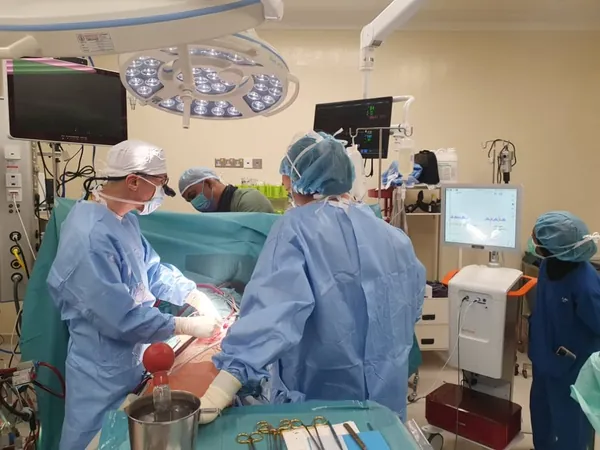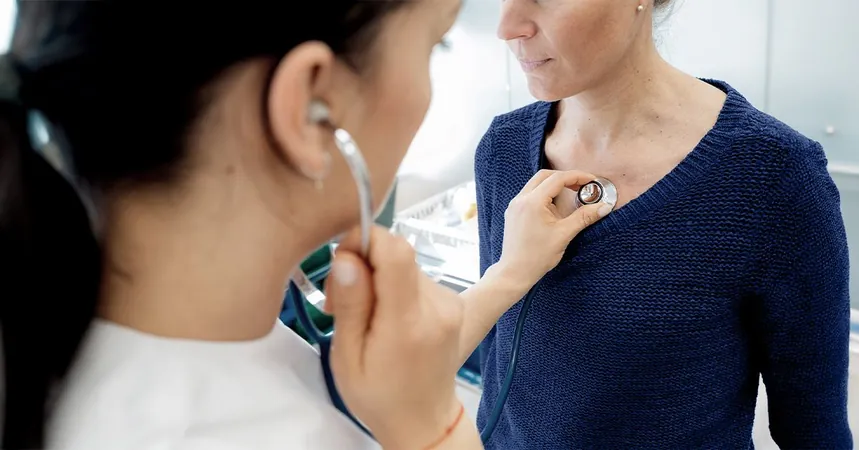
Heart Disease Crisis in Malaysia: What You Need to Know About Coronary Artery Bypass Grafting
2024-09-30
KUALA LUMPUR, Sept 30 – Heart disease has emerged as the leading cause of death in Malaysia, a troubling trend fueled by the rising rates of diabetes, hypertension, and cholesterol among the populace. The latest National Health and Morbidity Survey, published in 2023, reveals that a staggering 33.3% of Malaysians struggle with high cholesterol, while 29.2% face hypertension. These alarming statistics are often linked to unhealthy lifestyle choices, including poor diet, lack of physical activity, and smoking.
For the last two decades, coronary heart disease has remained the top cause of mortality, only interrupted in 2021 by Covid-19. Just last year, coronary heart disease accounted for 16.1% of medically certified deaths in Malaysia, translating to over 20,000 lives lost.
Amidst this health crisis, advances in medical science offer hope, particularly through procedures like Coronary Artery Bypass Grafting (CABG). This surgical intervention serves as a critical solution for patients fighting against the deadly ramifications of untreated coronary artery disease.
CABG is a complex yet lifesaving operation that aims to restore blood flow to the heart by creating new pathways around blocked arteries. Dr. Kenny Cheng, a leading cardiothoracic surgeon at Subang Jaya Medical Centre (SJMC), has been at the forefront of performing this essential surgery since 2011.
Dr. Cheng explains that CABG is typically advised for patients suffering from severe coronary heart disease, where the coronary arteries are obstructed due to plaque accumulation. The surgery involves the meticulous harvesting of a healthy artery or vein from another part of the patient’s body and using it to bypass the blockage in the coronary artery. "This procedure allows blood to flow more freely, reducing the risk of potentially fatal heart attacks," he emphasized.
The surgery itself is intricate and can take between three to four hours to complete. It necessitates a specialized and highly coordinated medical team to minimize risks such as bleeding, infection, or even death during the operation. Dr. Cheng has adopted state-of-the-art vein harvesting techniques that leave minimal scars, opting for minimally invasive methods instead of the traditional large incisions.
Recovery from CABG generally spans four to six weeks, during which most patients witness significant improvements in their quality of life. However, the journey doesn’t stop at surgery. Dr. Cheng stresses the necessity for long-term medication, lifestyle adjustments, and regular medical follow-ups.
The complexity of heart disease in Malaysia is exacerbated by a demographic shift; heart disease is no longer confined to the older population. Increasingly, younger individuals are facing similar health challenges, with alarming cases even in those as young as 36.
Moreover, the role of blood banks is crucial in facilitating CABG procedures. A well-equipped blood bank is essential for ensuring that there is adequate blood supply available during surgeries, as complications might require blood transfusions. Pathmavathy Supramani, a senior medical laboratory scientist at SJMC, highlighted the ongoing challenge of maintaining sufficient blood stocks and the critical collaboration with Pusat Darah Negara to support these demanding operations.
As heart disease grips Malaysia, raising awareness and promoting preventive measures are imperative. Medical professionals continue to emphasize the importance of lifestyle changes, as well as the need for the community to support local blood donation initiatives. The fight against heart disease is ongoing, but with education and commitment, there is a path toward improved heart health for all Malaysians.




 Brasil (PT)
Brasil (PT)
 Canada (EN)
Canada (EN)
 Chile (ES)
Chile (ES)
 España (ES)
España (ES)
 France (FR)
France (FR)
 Hong Kong (EN)
Hong Kong (EN)
 Italia (IT)
Italia (IT)
 日本 (JA)
日本 (JA)
 Magyarország (HU)
Magyarország (HU)
 Norge (NO)
Norge (NO)
 Polska (PL)
Polska (PL)
 Schweiz (DE)
Schweiz (DE)
 Singapore (EN)
Singapore (EN)
 Sverige (SV)
Sverige (SV)
 Suomi (FI)
Suomi (FI)
 Türkiye (TR)
Türkiye (TR)